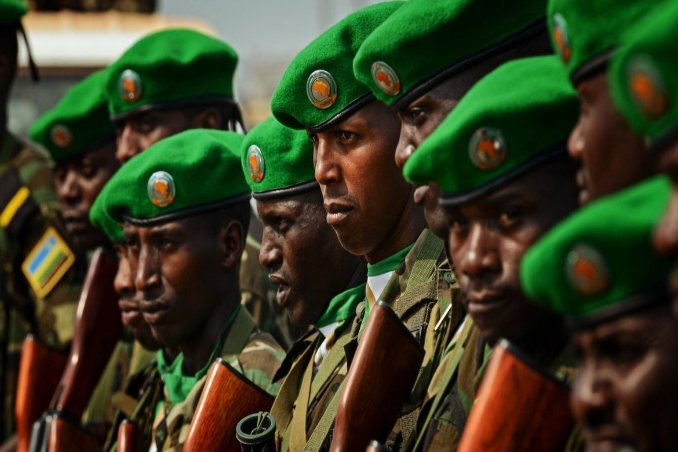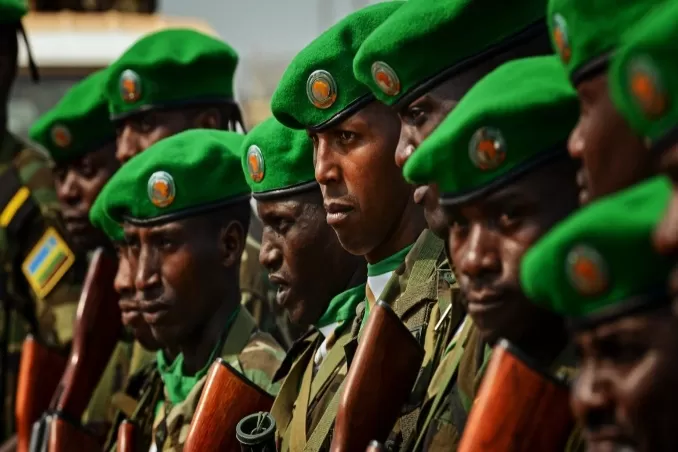

rwandan soldiers
Last updated on September 11th, 2021 at 07:56 am
The war in Mozambique against the Islamic extremist group Ansar al-Sunna al Shabaab is the first real turning point since 2017. Thanks to the army of an unexpected actor: Rwanda. After denying the conflict and preventing the news from crossing national borders, closing the mouth of journalists and bishops, President Filipe Nyusi asked the international community for help.
But while the European Union approved the mission of 120 units for training and the blockade of South African countries, Sadc, argued over who should take command, a thousand Rwandan soldiers arrived quietly on the 9th. July in the warring province of Cabo Delgado.
Within a month, the army of the strongman of Africa, Paul Kagame, succeeded where Nyusi failed for years, despite the help of Russian and South African mercenaries, now under investigation for crimes against humanity.
The spokesman for the Rwandan army, Ronald Rwanda, reports that 70 extremists have been killed. In recent days they have surrounded the last stronghold of the Shabaab terrorists (nothing to do with the Somali jihadists), Mocimboa da Praia, the symbolic city of jihadist advance. The liberation of the northern port town could mean the beginning of the end of the conflict.
The unique Rwandan intervention on the political scene in Mozambique follows Emmanuel Macron’s historic visit to Kigali in two months. The one in which the French president admitted the responsibility of Paris in the 1994 Rwandan genocide.
Kagame’s soldiers were the first to set foot in Cabo Delgado, siding on the Afungi peninsula, home of the French Total. Nobody knew. Not Parliament, not the opposition. Nyusi mentioned it the same day, without giving too many details.
In 4 years, the dead are more than 3 thousand, 50 beheaded and over 800 thousand displaced. Victims of war took place two thousand kilometers away from Maputo’s capital, worth at least 20 billion dollars thanks to the liquefied natural gas fields. Inexhaustible resources contracted out to international giants such as Eni, Total, and ExxonMobil, whose proceeds are hoarded by local elites: the people do not even see their shadow.
Discontent grew hand in hand with discovering new deposits, creating pockets of frustration and anger: ideal ingredients for joining the insurrection. Local or international conflict? Are the Shabaab’s, or are they not affiliated with ISIS? The US has already cataloged them: Isis-Mozambique‘s international terrorist group, headed by Abu Sulayfa Muhammad. They have the evidence. Researchers and analysts aren’t so sure. Equipped with grenades, Kalashnikovs, and anti-aircraft weapons, the extremists travel by motorbike, burn villages and behead with machetes.
In 2019 they came into contact with the African branch of the Caliphate, waving its black flag in Mocimboa. Still, they did not blow themselves up and never embraced the strict Salafist rules applied by the jihadist organization.
Creative Africa Nexus (CANEX) is running the Book Factory Prize for Publishing in Africa again to award $28,000 to African…
Canadian companies have expanded their presence as major African mining stakeholders and invested more than $37 billion. Africa holds the…
The South African government wants people to plant one million trees across the nation within a single day on September…
The government's statistics regulator showed that South African inflation stayed at 3.2% during February and rose below the projected 3.3%.…
Keywords: Cape Town, African Energy Chamber, Africa, The 2025 African Energy Week (AEW) will host the top energy leaders from…
Recent research shows that Professor Abdessamad Faik believes Africa is at an important energy choice point as renewable-powered hydrogen allows…
This website uses cookies.